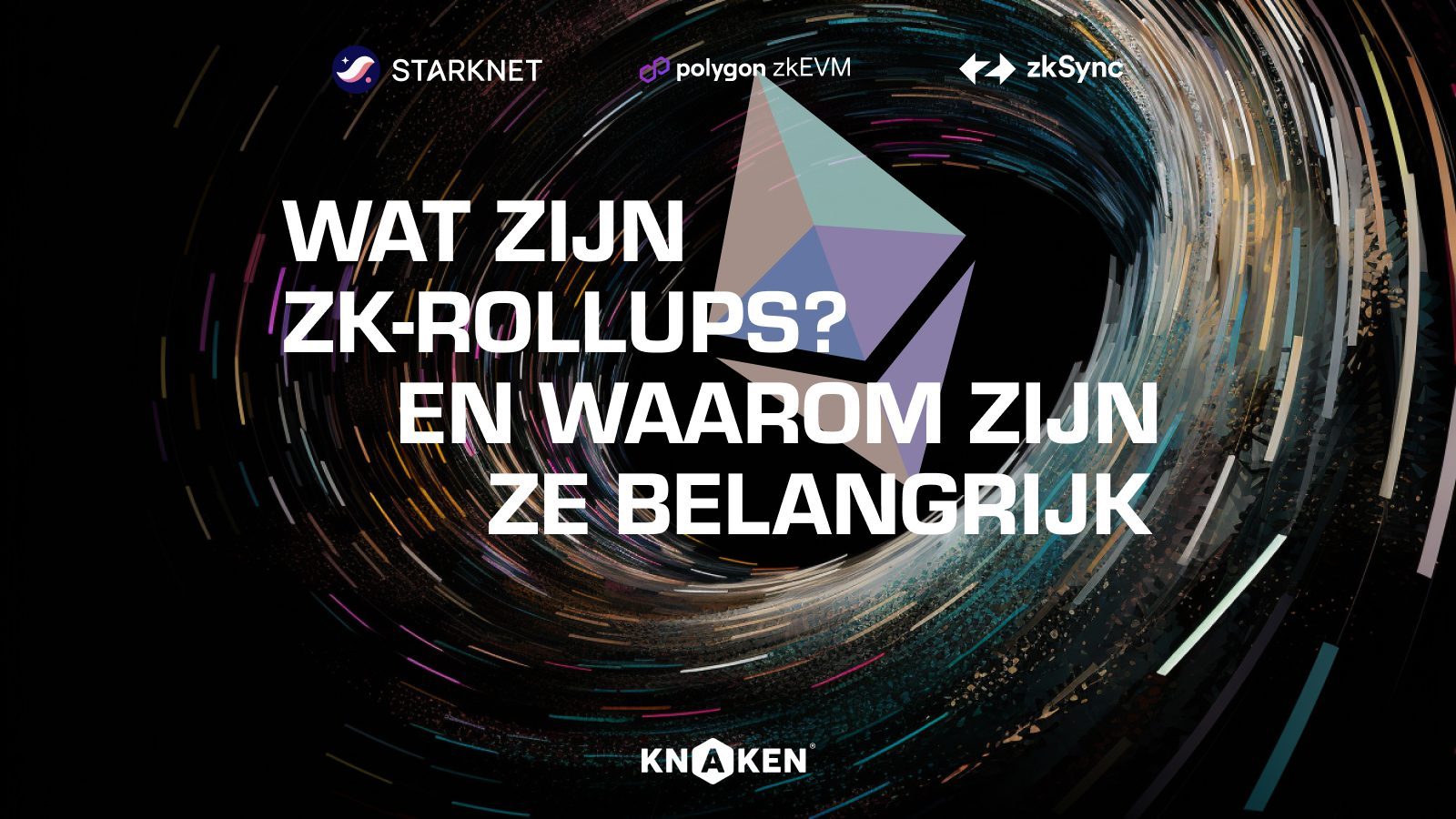

What are ZK-rollups?
ZK-rollups (Zero-Knowledge rollups) are a type of scalability solution for blockchain networks, particularly for Ethereum. They are designed to improve the processing of transactions on the blockchain and to reduce transaction costs and throughput times.
Essentially, ZK-rollups work by processing transactions off-chain and then creating a “rollup” of the results of those transactions on the blockchain. This rollup is a hash that contains the information of all off-chain transactions and is stored on the blockchain. By using this method, ZK-rollups can process many more transactions per second than the blockchain itself.
The “zero-knowledge” aspect of ZK-rollups refers to the ability to verify transactions without revealing their contents. This is achieved through the use of cryptographic techniques that ensure the transactions remain private, with only the hash of the rollup being stored on the blockchain.
Overall, ZK-rollups offer many advantages over traditional transactions on the blockchain, such as faster processing, lower costs, and increased privacy. Therefore, it is a promising technology that is likely to be used much more in the future.
How quickly can ZK-rollups process transactions?
Currently, the Ethereum base layer can process about 15 transactions per second. In comparison, ZK-rollups can theoretically process over 1000 transactions per second, depending on the implementation and configuration.
However, there are some limitations to consider. Firstly, ZK-rollups require a certain amount of time to verify transactions and create a rollup. This can lead to some delays in processing transactions, but it is still much faster than processing transactions on the Ethereum base layer.
What is the difference between ZK-rollups and Optimistic rollups like Arbitrum and Optimism?
Both ZK-rollups (Zero-Knowledge rollups) and Optimistic rollups are scalability solutions for blockchain networks, but they differ in their approach and the benefits they offer.
Here are some advantages of ZK-rollups over Optimistic rollups:
Improved privacy: ZK-rollups provide a higher level of privacy as the contents of the transactions remain confidential. In Optimistic rollups, transactions are visible on the blockchain, which allows for the collection of information on user behavior and transaction patterns.
Better security: ZK-rollups use cryptographic techniques to ensure the integrity of transactions, making it nearly impossible to forge transactions. In Optimistic rollups, there may be a small risk of fraud or manipulation of transactions.
Higher efficiency: ZK-rollups require fewer transactions to be verified since the rollup already contains proof of the correctness of the transactions. This means that ZK-rollups incur lower gas costs than Optimistic rollups.
Faster confirmation times: ZK-rollups require less verification and can, therefore, offer faster confirmation times than Optimistic rollups.
Better scalability: ZK-rollups potentially offer higher scalability than Optimistic rollups, as they rely less on the blockchain and enable more off-chain processing.
In summary, ZK-rollups provide enhanced privacy, security, efficiency, speed, and scalability compared to Optimistic rollups. However, Optimistic rollups also offer benefits, such as simpler development and broader support from DApps and smart contracts. Therefore, it depends on the specific needs of a blockchain network which solution is preferred.
What are interesting Rollup solutions to keep an eye on?
Starknet, ZKsync, and Polygon zkEVM are the three main and largest ZK rollup solutions for Ethereum. An increasing number of dApps and wallets also support these networks. These projects contribute to the adoption of the Ethereum ecosystem. Polygon already has a coin that is used for the Polygon sidechain, in which you can invest. There is currently much speculation about a future coin surrounding the other zk-Rollups.



Knaken Cryptohandel B.V. has applied for a MiCA license from the Netherlands Authority for the Financial Markets (AFM). This application is currently being assessed by the AFM.
Investing in crypto-related products involves significant risks.















